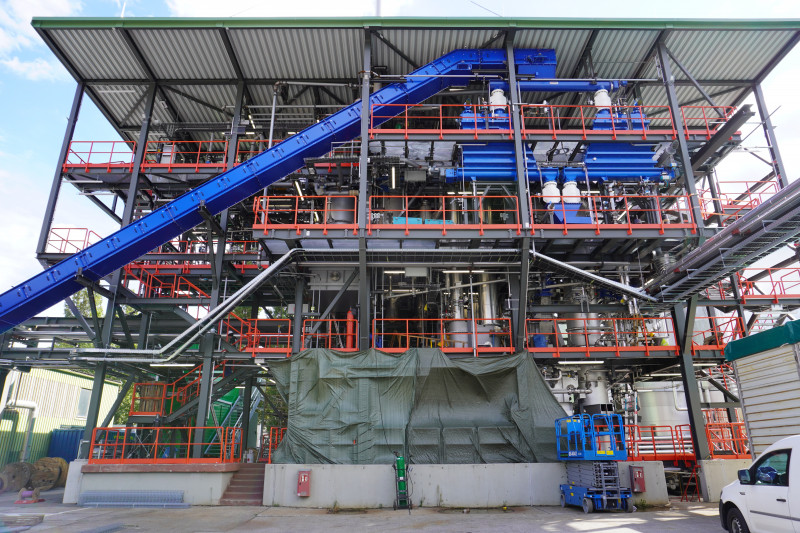COMET-Programme
The strategic objectives of COMET are: developing new expertise by initiating and supporting long-term research co-operations between science and industry in top-level research, and extablishing and securing the technological leadership of companies. By advancing and bundling exting strengths and by integrating international research expertise Austria is to be strengthened as a research location for the long term.
The competence center BEST - Bioenergy and Sustainable Technologies GmbH is funded by BMIMI, BMWET and the federal states Vienna, Lower Austria und Styria within the scope of COMET - Competence Centers for Excellent Technologies. The program COMET is managed by the FFG.
As a link between academic research and industrial technology development, our vision is to develop and demonstrate sustainable and circular biorefinery processes and technologies for producing green gases, green liquid fuels, and green products, all of which will support the transition to a climate-neutral, zero-fossil-carbon economy. Consequently, the resource basis will be extended to include organic residues, wastes, and carbon dioxide. Conversion technologies will be enhanced or redesigned to ensure their efficient and economical operation, and to allow the value cycles based on new feedstocks to be integrated into the system. By using our excellent experimental facilities, ranging from lab to pilot and demonstration scale plants, our goal is to conduct applied research of the highest scientific quality.
We apply advanced digital methods for technology development, and for the basic automation, optimization, and monitoring of the operation of individual technologies and entire plants. With the help of holistic and technology-neutral planning tools, we ensure that biorefineries and energy supply technologies are optimally integrated into a sustainable, renewable energy system.
FROM WASTE TO VALUE
Construction has started on a new pilot plant in Vienna, Austria, which will demonstrate the conversion of waste materials into eco-friendly and carbon-neutral fuels.
The Waste2Value project is driving the use of waste residues to produce hydrogen-rich syngas. The project focuses on waste fuels such as sewage sludge, residues from the pulp and paper industry, and mixtures with waste wood. In a second process step, the syngas is synthesized into liquid fuel (high quality diesel and kerosene). The current stage of the project runs to 2023 and covers construction and start-up of the pilot facility to gain the relevant operational experience. The Waste2Value research programme examines the entire process chain, starting with the waste fuel, and including syngas production, purification, treatment and synthesis through to the final refining and use of the FT fuel in fleet trials for public transport. The plant is the first of its kind in the world designed to demonstrate the use of this technology in a single, end-to-end process in an industrial environment. The project results will allow the process to be evaluated in economic and technical terms, providing the basis for the planned industrial-scale implementation of the process.
Construction of the plant began in September 2020, start-up is planned in the second half of 2021. The plant is being built by the SMS Group and is situated at the site of a hazardous waste incineration plant of Wien Energie in the urban area of Vienna.
Impact and effects
The gasifier is the key technology for a series of downstream options to upcycle the syngas produced by the gasifier. The various upcycling pathways to create CO2-neutral green diesel (Fischer-Tropsch (FT) fuel) and green kerosene, mixed alcohols, synthetic green natural gas and green hydrogen, all play a role in the City of Vienna’s decarbonisation strategy. For the SMS Group, a world leader in plant engineering for the steel industry, this new technological field represents an addition to the electricity-based production of hydrogen as an energy source and reducing agent in steel production which it currently offers in its core markets.
All in all, thermochemical syngas production is an extremely promising technology, with significant potential to become a key element in tomorrow’s “Green Economy”– especially in densely-wooded areas, like for example Austria, California and Canada but also in waste treatment in general, swapping landfills for renewable, upcycled energy carriers.
Partner
- Wien Energie GmbH
- SMS Group
- Heinzel Paper
- Wiener Linien GmbH
- Wiener Netze GmbH
- Österreichischen Bundesforste
- TU Wien
- Luleå University of Technology
Contact

Markus LUISSER
markus.luisser@best-research.eu
